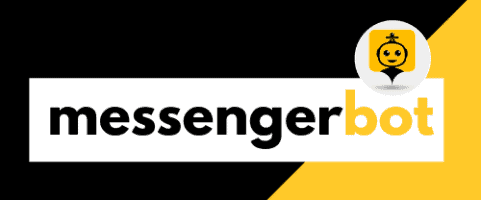Key Takeaways
- Understanding Legality: Facebook bots are legal when used ethically, adhering to regulations like GDPR and Facebook’s policies.
- Enhance Engagement: Implement Facebook Messenger marketing tactics to boost customer interaction and streamline responses.
- Combat Fake Accounts: Recognize the risks of bot followers that can distort engagement metrics and harm your brand’s credibility.
- Data Security: Be aware of potential threats from bad bots that can steal sensitive information; utilize security measures to protect your data.
- Leverage Free Tools: Small businesses can utilize free Facebook bot marketing tools to automate interactions and enhance customer experience.
In the rapidly evolving landscape of digital marketing, Facebook bot marketing stands out as a powerful tool for businesses aiming to enhance their engagement and streamline customer interactions. As we delve into the intricacies of this innovative approach, we will explore critical questions such as Are Facebook bots illegal? and Do bot followers ruin your account?, providing clarity on the legal landscape and the functionality of these bots. Additionally, we will uncover effective Facebook messenger marketing tactics that can elevate your strategy, ensuring compliance with Facebook’s terms of service while maximizing your outreach. From understanding the risks associated with fake accounts to leveraging free tools for small businesses, this article will serve as your comprehensive guide to navigating the world of Facebook marketing. Join us as we unpack the essential elements of Facebook marketing for small business and equip you with the knowledge to harness the full potential of bot marketing in your business strategy.
Are Facebook bots illegal?
The legality of Facebook bots is a nuanced topic that hinges on their intended use. In general, bots themselves are not illegal; they are automated software applications designed to perform specific tasks, often used in digital marketing, customer service, and data collection. However, the legality of their usage is contingent upon compliance with relevant laws and regulations.
Understanding the Legal Landscape of Facebook Bot Marketing
- Legitimate Uses of Bots: Bots can enhance user experience on platforms like Facebook by automating responses and providing information quickly. For instance, businesses often use chatbots to engage with customers, answer queries, and facilitate transactions. According to a report by the Pew Research Center, 69% of Americans use social media, making bots a valuable tool for businesses to connect with their audience effectively.
- Illegal Uses of Bots: It becomes illegal when bots are employed for fraudulent activities, such as spamming, data scraping, or impersonating users. The Computer Fraud and Abuse Act (CFAA) in the United States prohibits unauthorized access to computer systems, which can include malicious bot activity. Additionally, Facebook’s own policies explicitly forbid the use of bots for deceptive practices, ensuring that users are not misled.
- Regulatory Considerations: The General Data Protection Regulation (GDPR) in Europe imposes strict guidelines on data collection and user consent, which can affect how bots operate. Businesses must ensure that their bots comply with these regulations to avoid legal repercussions.
- Best Practices for Bot Usage:
- Transparency: Clearly inform users when they are interacting with a bot.
- Compliance: Adhere to platform policies and legal regulations to ensure ethical use.
- User Consent: Obtain explicit consent from users before collecting personal data through bots.
In summary, while Facebook bots are not inherently illegal, their usage must align with legal standards and ethical practices to avoid potential legal issues. For further reading on the implications of bot usage in digital marketing, refer to the Federal Trade Commission (FTC) guidelines and the Pew Research Center’s studies on social media engagement.
Compliance with Facebook’s Terms of Service
To ensure that your use of Facebook bots remains compliant, it’s essential to understand Facebook’s Terms of Service. These guidelines outline acceptable practices for bot usage, emphasizing the importance of user privacy and data protection. Here are key points to consider:
- Adherence to Policies: Facebook requires that all bots comply with its platform policies, which prohibit misleading or deceptive practices. This means your bot should not impersonate users or misrepresent its capabilities.
- Data Protection: Bots must handle user data responsibly, ensuring that any data collected is done so with user consent and in compliance with applicable laws, such as GDPR.
- Respect User Experience: Bots should enhance the user experience rather than detract from it. This includes providing valuable information and maintaining a respectful tone in interactions.
By following these guidelines, businesses can effectively utilize Facebook bots while minimizing legal risks and fostering trust with their audience. For more insights on implementing effective Facebook marketing strategies, consider exploring our resources on Messenger Bot tutorials.
Can I use a bot on Facebook?
Yes, you can use a bot on Facebook. Facebook allows developers to create bots that can interact with users through platforms like Facebook Messenger and Workplace. Here’s how you can set up a bot on Facebook:
- Choose a Bot Framework: Select a bot development framework that suits your needs. Popular options include Microsoft Bot Framework, Dialogflow, and Botpress. These frameworks provide tools and APIs to streamline the bot creation process.
- Create a Facebook App: Go to the Facebook for Developers site and create a new app. This app will serve as the foundation for your bot, enabling it to connect with Facebook’s services.
- Set Up Messenger: In your app settings, navigate to the Messenger product and configure it. You will need to generate a Page Access Token, which allows your bot to send and receive messages on behalf of your Facebook Page.
- Develop Your Bot: Use the chosen framework to build your bot’s functionalities. This includes defining how it will respond to user queries, integrating APIs for additional features, and ensuring it adheres to Facebook’s policies.
- Test Your Bot: Before going live, thoroughly test your bot within the Messenger platform. Facebook provides a testing environment where you can simulate conversations and troubleshoot any issues.
- Launch and Monitor: Once testing is complete, you can publish your bot. Monitor its performance using Facebook’s analytics tools to understand user interactions and improve its responses over time.
For more detailed guidance, refer to the official Facebook documentation on Messenger bots, which outlines best practices and compliance requirements. Additionally, consider reviewing resources from Microsoft Azure on integrating bots with Facebook Messenger for advanced functionalities.
Exploring Facebook Bot Marketing Strategies
Implementing a successful facebook marketing bot strategy involves understanding your audience and leveraging the capabilities of Messenger bots effectively. Here are some strategies to consider:
- Personalized Interactions: Use data analytics to tailor conversations based on user preferences and behaviors. This can enhance user engagement and satisfaction.
- Automated Customer Support: Deploy your bot to handle common inquiries, freeing up human resources for more complex issues. This can improve response times and customer satisfaction.
- Lead Generation: Utilize your bot to capture leads through interactive conversations, guiding users toward your products or services.
- Promotional Campaigns: Create automated campaigns that inform users about new products, special offers, or events, driving traffic to your Facebook page.
By integrating these strategies into your facebook messenger marketing efforts, you can create a more engaging and effective marketing approach.
Are Facebook Bot Accounts Real?
Understanding the reality of Facebook bot accounts is essential for anyone involved in facebook marketing. Facebook bot accounts, commonly referred to as spam bots, are automated profiles created to mimic human behavior on the platform. These bots are programmed to perform various actions such as liking, following, commenting, and posting content without any human intervention. Their primary objectives can range from artificially inflating engagement metrics to promoting specific products or services, often leading to a distorted perception of popularity and interaction on the platform.
Distinguishing Between Real and Fake Facebook Bot Accounts
Identifying the difference between real and fake Facebook bot accounts is crucial for effective facebook messenger marketing. Here are some key types of Facebook bots:
- Spam Bots: These are designed to generate unsolicited content and interactions, often leading to a cluttered user experience.
- Engagement Bots: These bots aim to increase likes and follows for pages or posts, which can mislead users about the actual popularity of content.
- Messenger Bots: While distinct from spam bots, Messenger bots are automated tools used by businesses to interact with users, providing customer service or information. Unlike spam bots, they are typically programmed for legitimate purposes and can enhance user engagement when used appropriately.
The Impact of Fake Accounts on Facebook Marketing
The presence of fake accounts can significantly affect facebook marketing strategies. Here are some impacts to consider:
- User Experience: The presence of spam bots can degrade the quality of interactions on Facebook, making it difficult for users to engage with genuine content.
- Business Implications: Companies may find their marketing efforts undermined by inflated engagement metrics, leading to misguided strategies based on inaccurate data.
Understanding the nature of Facebook bot accounts is crucial for users and businesses alike, as it allows for better engagement strategies and a more authentic social media experience. For further insights on managing your Facebook marketing, consider exploring effective tactics that can enhance your approach.
How do FB bots work?
Facebook bots, also known as chatbots, are automated programs designed to interact with users through Facebook Messenger. They utilize natural language processing (NLP) to understand and respond to user inquiries in a conversational manner. Here’s how they work:
- User Interaction: A user initiates a conversation by typing a question or command in natural language within the Facebook Messenger interface.
- Natural Language Processing: The bot employs NLP algorithms to interpret the user’s input. This involves breaking down the text to understand intent and context, allowing the bot to comprehend various ways a question might be phrased.
- Database Querying: Once the bot understands the inquiry, it searches its pre-programmed database or connects to external APIs to retrieve relevant information. This database can include FAQs, product details, or service information.
- Response Generation: After retrieving the necessary information, the bot formulates a response. This can range from simple text replies to more complex interactions involving images, buttons, or quick replies.
- Continuous Learning: Advanced Facebook bots utilize machine learning to improve their responses over time. By analyzing user interactions, they can adapt and refine their understanding, leading to more accurate answers in future conversations.
- Integration with Services: Many Facebook bots can integrate with other services, allowing them to perform tasks such as booking appointments, processing orders, or providing customer support, enhancing user experience.
The Functionality of Facebook Messenger Marketing Bots
Facebook Messenger marketing bots are powerful tools that enhance customer engagement and streamline communication. They can automate responses, manage inquiries, and even facilitate transactions. By leveraging advanced features, businesses can create tailored experiences that resonate with their audience. For instance, integrating e-commerce capabilities allows users to browse products directly within Messenger, making the shopping experience seamless.
Moreover, these bots can be programmed to handle multiple languages, broadening the reach of your Facebook marketing strategy. This multilingual support ensures that businesses can cater to diverse customer bases, enhancing overall satisfaction and engagement.
Key Facebook Messenger Marketing Tactics for Success
To maximize the effectiveness of your Facebook Messenger marketing bot, consider implementing the following tactics:
- Personalization: Tailor interactions based on user data to create a more engaging experience. Personalized messages can significantly increase user satisfaction and retention.
- Interactive Content: Utilize rich media such as images, videos, and quick reply buttons to make conversations more dynamic and engaging.
- Lead Generation: Use the bot to capture leads by offering valuable content or exclusive deals in exchange for user information.
- Analytics Tracking: Monitor performance metrics to understand user behavior and optimize your bot’s responses and functionalities accordingly.
- Regular Updates: Keep your bot updated with the latest information and features to ensure it remains relevant and useful to users.
By implementing these Facebook Messenger marketing tactics, businesses can enhance their customer engagement and drive better results from their marketing efforts.
Do Bot Followers Ruin Your Account?
Yes, bot followers can significantly damage your Facebook marketing efforts. Here’s how they affect your profile and what you can do about it:
- Distorted Engagement Metrics: Bot followers inflate your follower count without contributing to genuine engagement. This leads to misleading metrics, such as likes, comments, and shares, which can harm your account’s visibility and credibility. According to a study by Hootsuite, accounts with high numbers of fake followers often experience lower engagement rates, negatively impacting their algorithm ranking.
- Reduced Authenticity: Brands and potential followers are increasingly discerning. An account with a high proportion of bot followers may be perceived as inauthentic, leading to a loss of trust. A report from Sprout Social highlights that authenticity is crucial for building a loyal audience on social media.
- Risk of Account Suspension: Facebook actively works to identify and remove fake accounts. If your account is found to have a significant number of bot followers, it could be flagged or even suspended. Facebook’s Community Standards emphasize the importance of genuine interaction and discourage the use of bots.
- Impact on Advertising: If you plan to use Facebook for advertising, having a large number of bot followers can skew your ad performance metrics. Advertisers look for accounts with real engagement, and a high bot follower count can lead to wasted ad spend. According to a study by Adweek, brands that focus on authentic engagement see a higher return on investment.
Strategies to Maintain Authentic Engagement on Your Facebook Page
To ensure your Facebook marketing remains effective and authentic, consider the following strategies:
- Audit Your Followers: Use tools like HypeAuditor or IG Audit to identify and analyze your follower base. Regular audits help you maintain a clean and engaged audience.
- Manually Remove Bots: Go through your followers list and remove any accounts that appear suspicious or inactive. This proactive approach helps maintain the integrity of your follower count.
- Engage with Real Followers: Focus on creating quality content that attracts genuine followers. Engaging with your audience through comments and direct messages can help build a loyal community.
- Utilize Facebook Marketing Tools: Leverage tools designed for Facebook marketing, such as Messenger bots, to enhance user interaction and engagement. These tools can help automate responses while maintaining a personal touch.
In conclusion, while bot followers may provide a temporary boost in numbers, they ultimately undermine the integrity and effectiveness of your Facebook marketing strategy. Prioritizing authentic engagement and regularly auditing your follower list can help maintain a credible and successful online presence.
Can bots steal your info?
Yes, bots can indeed steal your information, particularly through malicious activities conducted by bad bots. Understanding the distinction between good bots and bad bots is crucial for cybersecurity awareness.
Understanding Security Risks Associated with Facebook Bots
When discussing facebook bot marketing, it’s essential to recognize the security risks involved. Bots can be categorized into two main types:
- Good Bots: These are automated programs that perform beneficial tasks, such as customer service (e.g., Messenger Bots) and search engine indexing.
- Bad Bots: These have malicious intent and can engage in harmful activities, including data theft, spamming, and denial-of-service attacks.
Bad bots can steal information through various methods:
- Data Scraping: Unauthorized extraction of personal information from websites, including email addresses and phone numbers.
- Credential Stuffing: Automating login attempts using stolen credentials to gain unauthorized access to user accounts.
- Web Application Attacks: Exploiting vulnerabilities in web applications to extract sensitive data or inject malicious code.
Protecting Your Data in the Age of Bot Marketing
To safeguard against the risks posed by bad bots, businesses should implement several preventive measures:
- Implementing CAPTCHA: This helps distinguish between human users and bots, reducing the risk of automated attacks.
- Using Web Application Firewalls (WAF): These can filter and monitor HTTP traffic to and from a web application, providing an additional layer of security.
- Regular Security Audits: Conducting audits can help identify vulnerabilities that bad bots might exploit, ensuring that security measures are up to date.
By understanding these risks and implementing robust security measures, businesses can protect their data while leveraging facebook messenger marketing and other facebook marketing strategies effectively. For further reading, consider resources from the Cybersecurity & Infrastructure Security Agency (CISA) and insights on bot management from Akamai.
Facebook Bot Marketing for Small Business
Facebook bot marketing presents a unique opportunity for small businesses to enhance customer engagement and streamline operations. By leveraging the capabilities of a facebook marketing bot, small businesses can automate interactions, respond to inquiries in real-time, and ultimately drive sales without the need for extensive resources.
Leveraging Free Facebook Bot Marketing Tools
Utilizing free tools for facebook messenger marketing can significantly reduce costs while maximizing outreach. Here are some effective strategies:
- Automated Responses: Implementing automated responses allows businesses to address customer inquiries instantly, improving user satisfaction and engagement.
- Lead Generation: Use interactive messaging techniques to capture leads effectively. Bots can guide potential customers through the sales funnel, making the process seamless.
- Multilingual Support: Many free tools offer multilingual capabilities, enabling businesses to cater to a diverse audience and enhance their facebook marketing strategy.
For small businesses looking to explore these tools, platforms like Brain Pod AI provide robust solutions that can be integrated easily into existing workflows.
Integrating Facebook Bot Comments for Enhanced Engagement
Integrating bot comments into your facebook marketing strategy can significantly boost engagement rates. Here’s how:
- Comment Automation: Automate responses to comments on posts to maintain engagement without constant monitoring. This ensures that potential customers feel valued and heard.
- Interactive Content: Use bots to create interactive posts that encourage user participation, such as polls or quizzes, which can lead to increased visibility and shares.
- Feedback Collection: Bots can be programmed to solicit feedback from users, providing valuable insights into customer preferences and improving future marketing efforts.
By effectively integrating these strategies, small businesses can enhance their facebook messenger marketing tactics and foster a more engaged community around their brand.







